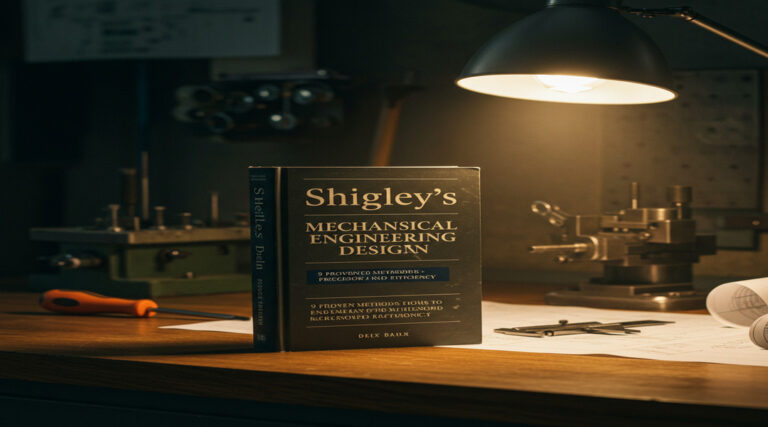Mechanical Design Engineer VS Mechanical Engineer: How They Compare in 2025
Choosing between a Mechanical Design Engineer and a Mechanical Engineer in 2025 can be tricky. Both roles are crucial in industries like automotive, aerospace, and manufacturing. But what sets them apart? While a Mechanical Engineer focuses on broad engineering principles, a Mechanical Design Engineer specializes in machine design, product development, and CAD modeling.
Much like choosing between two great recipes—one that’s rich in tradition and another that’s innovative—understanding these careers helps you pick the right path. Whether you’re considering a career shift or just curious about engineering fields, this guide will give you a detailed comparison.
Table of Contents
What is a Mechanical Design Engineer?
A Mechanical Design Engineer is a specialist who focuses on designing mechanical systems and products. They work closely with mechanical design firms, product design teams, and CAD experts to create detailed blueprints and prototypes. They use tools like AutoCAD for mechanical engineering and 3D mechanical design software to ensure precision.
Imagine a chef meticulously crafting a new dish—every ingredient (or in this case, component) needs to fit perfectly. Similarly, a mechanical design engineer ensures every part of a machine works together seamlessly.
What is a Mechanical Engineer?
A Mechanical Engineer, on the other hand, takes a broader approach. They study machine design, mechanical design technology, and manufacturing processes to develop efficient systems. While they may also use mechanical CAD, their focus is often on engineering analysis, thermodynamics, and materials science rather than detailed design work.
If a mechanical design engineer is like a chef perfecting a new dish, a mechanical engineer is the food scientist researching the best way to cook it efficiently at scale.
Why You’ll Love Mechanical Design Engineering
- Precision and Creativity – You get to design intricate mechanical systems with opto-mechanical design principles and modern 3D modeling techniques.
- High Demand – With industries relying on mechanical design services, skilled professionals are in demand.
- Cutting-Edge Tools – Work with top-notch software like AutoCAD, SolidWorks, and Fusion 360 to bring designs to life.
How to Become a Mechanical Design Engineer
Quick Overview
To become a mechanical design engineer, you need a mix of technical education, hands-on experience, and software proficiency. Most professionals start with a degree in mechanical engineering or product design mechanical engineering and gain expertise in mechanical CAD tools.
Key Skills for Mechanical Design Engineering:
- Proficiency in AutoCAD for mechanical engineering and 3D modeling
- Strong knowledge of mechanical design principles and material science
- Understanding of machine design: an integrated approach
- Familiarity with manufacturing processes and mechanical analysis
Step-by-Step Guide:
- Earn a Degree – A bachelor’s in mechanical engineering or product design is a great start.
- Learn CAD Software – Master AutoCAD, SolidWorks, and 3D mechanical design tools.
- Gain Experience – Intern with mechanical design companies or work on mechanical projects.
- Build a Portfolio – Showcase your mechanical drawing sketches and CAD models.
- Stay Updated – Follow trends in mechanical design technology and opto-mechanical design.
Career Comparison: Mechanical Design Engineer vs. Mechanical Engineer
| Feature | Mechanical Design Engineer | Mechanical Engineer |
|---|---|---|
| Focus | Product and machine design | Broad mechanical systems |
| Key Skills | CAD, 3D modeling, drafting | Analysis, thermodynamics, materials science |
| Software | AutoCAD, SolidWorks, Fusion 360 | MATLAB, ANSYS, FEA tools |
| Industry Demand | High in mechanical design firms and manufacturing | High in aerospace, energy, and R&D |
| Career Path | Specialized in design roles | Versatile across various engineering fields |
Top Industries Hiring Mechanical Design Engineers
- Aerospace & Defense – Aircraft and spacecraft component design
- Automotive – Vehicle part design and mechanical CAD modeling
- Manufacturing – Production machinery and mechanical design services
- Consumer Products – Household appliances, medical devices, and tools
Storing and Reheating Your Mechanical Design Skills 😉
Just like a great recipe, your skills need maintenance. Keep up with the latest in mechanical design technology by:
- Taking Advanced Courses – Stay updated with machine design principles
- Practicing CAD Skills – Improve proficiency in AutoCAD for mechanical engineering
- Networking with Experts – Join mechanical design communities and forums
Final Thoughts
A mechanical design engineer and a mechanical engineer both play vital roles in the industry. If you enjoy precise design work, CAD modeling, and product development, then mechanical design engineering is for you. However, if you’re more interested in engineering analysis, systems optimization, and broad mechanical concepts, a traditional mechanical engineering path might be a better fit.
Which career path excites you the most? Let us know in the comments below!







